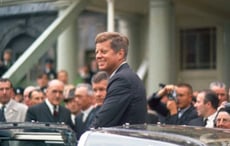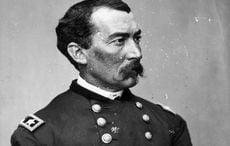It is no great surprise but still a shock in many ways that former Irish Prime Minister Bertie Ahern has announced he will quit politics.
He announced on Thursday that he would not compete for his parliamentary seat in the next election expected in late March.
His star had fallen so far that there was a real question if he could retain it anyway.
He was leader of Ireland for ten years, an unprecedented time in the modern era and once thought his legacy would be the Celtic Tiger.
Instead that collapsed and much of the blame was laid on his shoulders.
It was certainly due in part to his own lax oversight of the banking system and the businessmen he was far too close to.
Though personally he never appeared to enrich himself, unlike his mentor Charles Haughey, he allowed corrupt practices to flourish in many aspect of Irish life and in the end it all came back to haunt him
He resembled the first Mayor Richard Daley, political power was everything to him and he turned a blind eye to many in his administration and what they were up to. He himself, however, lived modestly.
But in one area Ahern will long deserve praise and plaudits and that is the Irish peace process.
He was a key figure in helping end Europe's longest running guerrilla war.
I remember meeting him when he was out of power and about to win the general election of 1997.
He told me he was certain he could get the IRA to restore their ceasefire after their first one had broken down over decommissioning. Not too many people believed him.
He was as good as his word. He was elected June 6th and by July 20th it was restored.
It was a massive breakthrough.
By April 1998 he had played a major role in formulating the Good Friday Agreement which effectively brought the North's nightmare to a close.
Soon after he and Tony Blair were unlucky they did not get the Nobel Prize alongside the SDLP's John Hume and David Trimble of the Ulster Unionist Party for their efforts.
Barack Obama got it in 2009 for a lot less.
On a personal level, Ahern was affable, friendly and personable. But even close friends doubted if they ever really knew him. He was a very private man in a very public space.
I was present in Washington during his farewell address to the Joint Session of Congress in March 2009.
It was a victory lap for Ahern and his sense of pride of what he had achieved was palpable.
It all looks different now.
The stunning developments of the past 18 months on the economy will have caused him enormous heartache.
He knew it was time to go as his parting comments made clear
"Now it is time to stand aside, to pass on the baton and allow others to continue the race," the 59-year-old said.
"The next generation will build on our success and they will learn from our mistakes. It is not just that life will go on; I believe that life will get better."
Prime Minister Brian Cowen, who served with him as finance minister described him as "without question the consummate politician of our generation in this country".
That was true but as we are constantly reminded, all political careers end in failure.
For Bertie Ahern, after hitting such high points that reality must be toughest of all to acknowledge.
His beloved Fianna Fail faces a meltdown in the next election and he himself has to battle to keep his good name in politics and in history.
Yet, I feel when those books are written his role in the peace process will still be paramount.
A few months back I met him in Dublin when former president Bill Clinton was over. Even to a casual observer it was clear that he misses the political cut and thrust and hurly burly.
It is a sad end to a career that promised and delivered much but also left huge question marks.
In the end Bertie Ahern will be known as a flawed leader who did the state some service.
There are worse things than that.




Comments